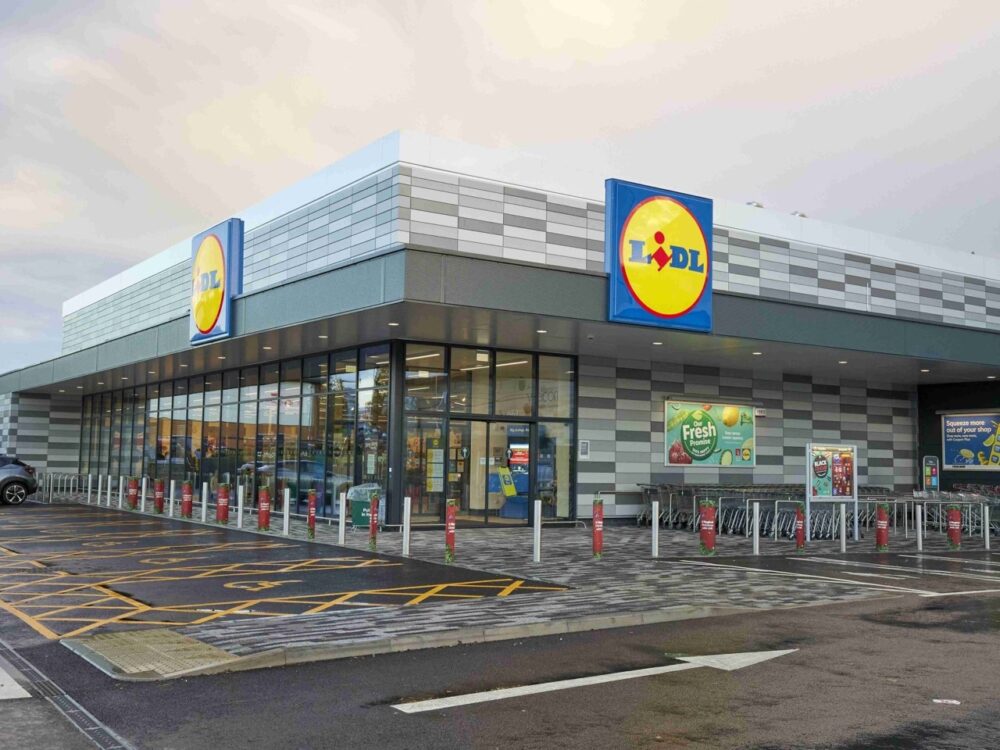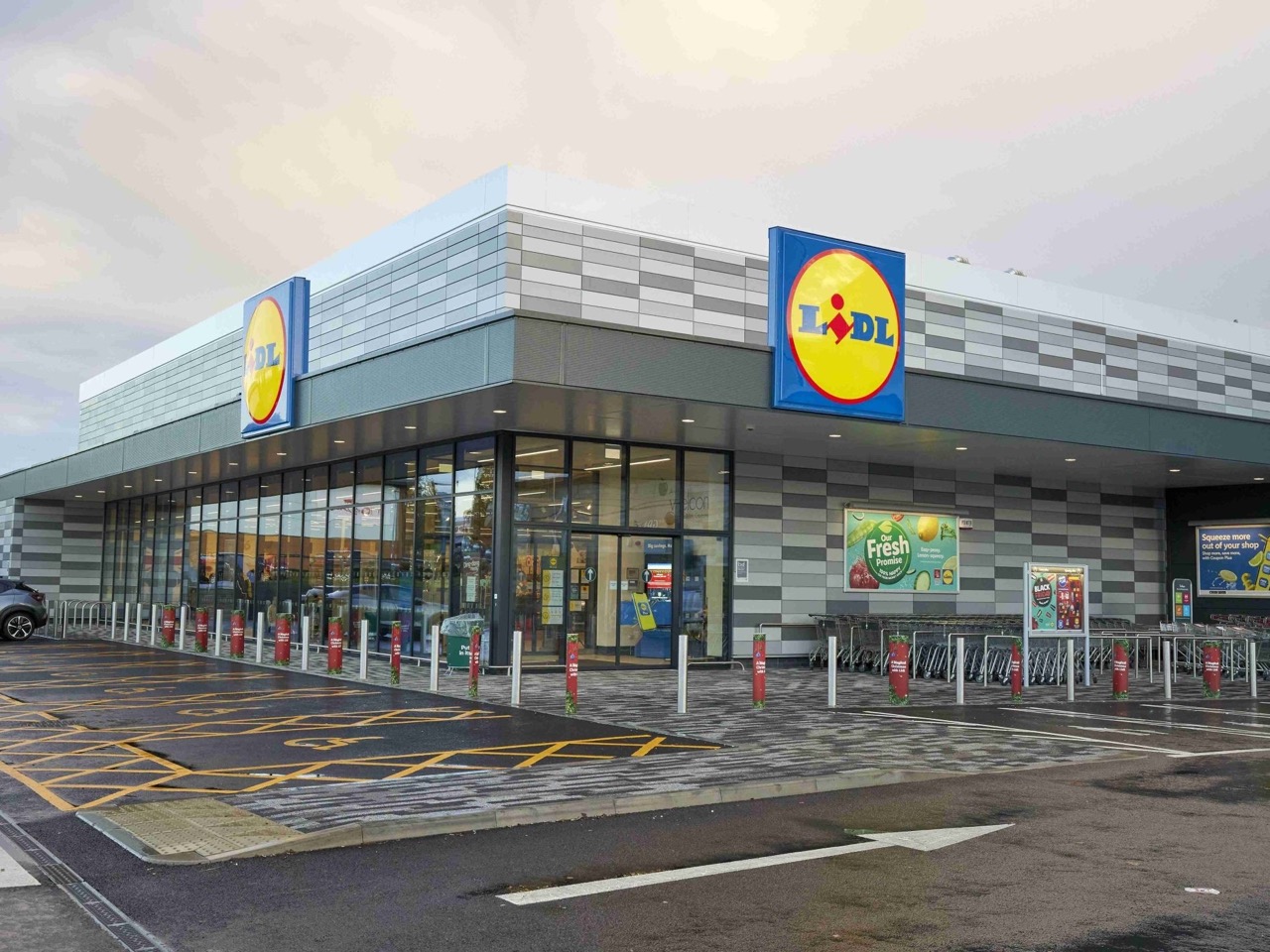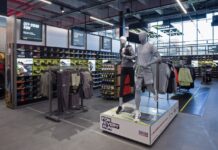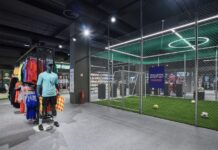Lidl, one of Europe’s largest food retailers, has announced its commitment to achieving net-zero by 2050 as part of its international corporate social responsibility (CSR) strategy. This latest move outlines Lidl’s ambitious climate targets across its own operations and supply chain, reinforcing its dedication to embedding sustainable practices at an international level.

Reducing Emissions Across Operations
By 2030, Lidl aims to reduce its absolute Scope 1 and 2 emissions by 70% compared to a 2019 baseline. The retailer has already made significant progress, with a 52% reduction in these emissions across all its markets. In Great Britain, Lidl has taken further steps to cut its carbon footprint, including sourcing 100%* of its electricity from renewable sources and installing solar panels on new stores and regional distribution centres (RDCs). Lidl has also started transitioning its delivery fleet from diesel trucks to biogas-powered vehicles.
Tackling Scope 3 Emissions
In addition to its Scope 1 and 2 targets, Lidl’s net-zero ambition extends to Scope 3 emissions, which cover its value chain and products sold in-store—where over 90% of the company’s total emissions are generated. By 2034, Lidl plans to reduce its absolute Scope 3 agriculture, forestry, and other land use (FLAG) greenhouse gas emissions by 42.4% from a 2022 baseline. Furthermore, the company is targeting a 35% reduction in Scope 3 emissions from the energy and industry sectors by 2034.
Collaborating with Suppliers for Sustainability
As part of its strategy to achieve net-zero, Lidl is working closely with suppliers to meet climate targets. By 2026, the retailer’s strategic suppliers, responsible for 75% of product-related Scope 3 emissions, are expected to set climate goals aligned with the Science Based Targets Initiative (SBTi).
Lidl GB has already taken steps in high-emission product categories. One of its key beef suppliers, Dunbia, has committed to reducing Scope 3 emissions intensity by 28% per tonne of finished product by 2030. Additionally, Lidl has launched its Sustainable Beef Group, which supports farmers in adopting more sustainable practices, financially rewarding those who reduce carbon intensity and implement regenerative farming techniques. These methods aim to improve grazing management, biodiversity, and soil and water quality unique to each farm.
Lidl GB has also partnered with Manufacture 2030, a carbon reduction platform, and Mondra, a supply chain decarbonisation platform, to help its suppliers improve Scope 3 data collection and reduce emissions at various stages of the supply chain.
CEO’s Commitment to Sustainability
Ryan McDonnell, CEO of Lidl GB, highlighted the company’s dedication to addressing climate change, stating: “Tackling climate change is a huge priority for us at Lidl; our commitment to achieving net-zero through our new quantified targets demonstrates the scale of our ambition. We know that collaboration will be central to our aims—from engaging customers on our progress to working closely with suppliers to develop products more sustainably. We’re excited for the journey ahead and are absolutely clear on our mission to deliver the most sustainable product range at the best possible price for shoppers.”
Commitment to Science-Based Targets
Lidl’s climate targets are supported by the Science Based Targets Initiative (SBTi), a global effort that helps companies set science-based goals to reduce greenhouse gas emissions in alignment with the latest climate science. Lidl, part of the Schwarz Group, has been committed to the SBTi since 2020 to support the 1.5-degree Celsius target outlined in the Paris Climate Agreement. This commitment is integral to Lidl’s international CSR strategy, demonstrating its responsibility in contributing to global climate goals.
For more information on Lidl GB’s sustainability initiatives, visit Lidl Sustainability.















